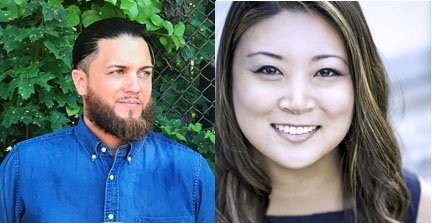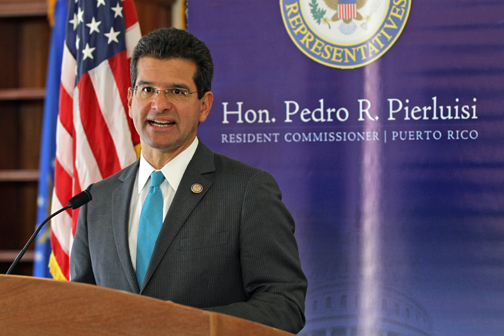Op-Ed: P.R. education policy creates new man-made disaster for children

Recently, the governor of Puerto Rico, Ricardo Rosselló, signed an education reform bill that will introduce charter schools to Puerto Rico for the first time in history.
The signing of the bill took place while students, parents, and teachers have been relentlessly protesting the proposed closure of 283 schools across the island. The current government has blamed the school closures on lack of funding for repairs and low enrollment due to families fleeing the island post-Hurricane María.
The promotion of charter schools over public schools is a common theme in low income and communities of color, following a natural disaster. While emergency services flood into areas like Houston, following its hurricane recovery, Puerto Rico was mostly left on its own to rebuild after extensive damage to all of its infrastructure including electricity, schools and hospitals.
The only attention Puerto Rico’s schools received from the federal government was when The U.S. Secretary of Education, Betsy DeVos helped advise Roselló — a long-time supporter of privatization — in the drafting of the legislation that would introduce charter schools to Puerto Rico.
Roselló’s vision for the education system in Puerto Rico has already taken place in New Orleans, another American community of color ravaged by a hurricane and abandoned by the federal government. Hurricane Katrina was used as an opportunity for the dismantling of a public education system that primarily served low-income Black students.
In both cases, the neglect of the U.S. government created a man-made disaster, on top of a natural disaster. In Puerto Rico, like New Orleans, thousands died, and thousands more remain without basic services like healthcare and education many months later.
Currently there is not a single public school in the New Orleans School District. The purported successes of the charter school movement have not come to fruition. Charter Schools have maintained segregation, decreased accessibility to local schools, and have underserved students with special needs.
They have reduced the number of veteran Black teachers and administrators from the impacted communities in a favor of teachers with no background, connection or cultural competency in the predominantly Black school district.
This shift has also lead to numerous school closures as well as investigations into the misappropriation of funds, refusal to serve students deemed undesirable and inflated administration salaries.
This lack of transparency and cultivated neglect has driven new organizing from students and teachers to oppose the current system’s lack of diverse curriculum material and lack of culturally competent educators. Puerto Rico now stands as the next testing ground for the School Choice Movement.
Over many decades educators and local leaders have worked to establish a public education system for the 1,466 schools that is primarily staffed by Puerto Ricans. Teachers and communities on the island have organized to defeat numerous attempts to prioritize English language instruction over Spanish.
Fewer than 20 percent of Puerto Ricans speak English fluently. Spanish is still the primary means of communication in day to day life for the overwhelming majority of people on the island. Outside, profit-driven charter school companies, neither appreciate nor respect this reality.
Puerto Rico must be able to develop a public education system that serves the needs of the communities and the people who call Puerto Rico home. The temporary exodus of families, due to the lengthy rebuilding process, cannot become an opportunity to pillage of the public education system.
As Boston public school teachers, we would urge national and local leaders to do something so simple and so valuable: listen to the teachers of Puerto Rico. Puerto Rican teachers unions have already proposed alternatives to school closures and communities have organized to state their demands for maintaining their local public schools.
Privatizing the public schools will dramatically reshape the educational system in Puerto Rico, in the image of corporate America. Puerto Ricans deserve public investment in their education system, not an abdication of responsibility to outsiders whose first priority is lining their own pockets.
Authors Jessica Tang is president of the Boston Teachers Union and Jeremy Aponte is Teacher/Member, Boston Public Schools/Puerto Rican Educators, Boston Teachers Union.








Could anyone suspect that Authors of this anti-Charter school tirade named Jessica Tang, president of the Boston Teachers Union and Jeremy Aponte is Teacher/Member, Boston Public Schools/Puerto Rican Educators, Boston Teachers Union might be biased? Well…yes maybe they are prone to using racist or any other argument to scare the good parents of school children in PR to oppose one of the most lucrative corruption avenues in the history of PR.
I met with one of several Under Secretaries of Education years ago and was amazed that she agreed with our proposal to help eliminate dyslexia as a severe problem in the teaching of reading in both Spanish and English to afflicted children in PR. Of course, the millions from the U.S. to P.R. for education come to this the third largest school district in the U.S. and unknown amounts disappear into programs that do not reach the small mountain schools that I have visited, so this idea was not funded by the Science & Technology part of PRIDCO, another government mis-managed for political needs entity.
So, readers might consider that what is really needed is a way to send the money from Washington to registered parents to be able to spend, but only on private or charter school education! Why non-public? First, its teachers do not have to belong to or have union dues deducted and be deposited directly into Union President controlled accounts! The S.C. just eliminated that routine! Second, the PR government should donate the school buildings that they don’t really maintain to the people in the area to support in competition as charter schools with the private schools. Having the property without cost and income from competitive programs, they can function like all other U.S. public schools with local control and less centralization of mandated rules, regs and programs.
Yes, to attract students wanting to work in a global economy, they might teach both the language of the students homes- almost always Español in all remote from major cities of PR, and English as the one most common in their world, if it is to be larger than the local area.
Will it work better? I guarantee it could not work worse!
Thank you for this news. I think it’s just outrageous. Education is the light of mankind. Only with the help of education does a person get motivation to study and give a deeper development in the direction in which he wants to develop. That allows the country to get smart, professionals in all areas of its activities. Why the future generation does not leave other ways for getting education. In addition, such force-majeure circumstances are incorporated in the country’s budget.